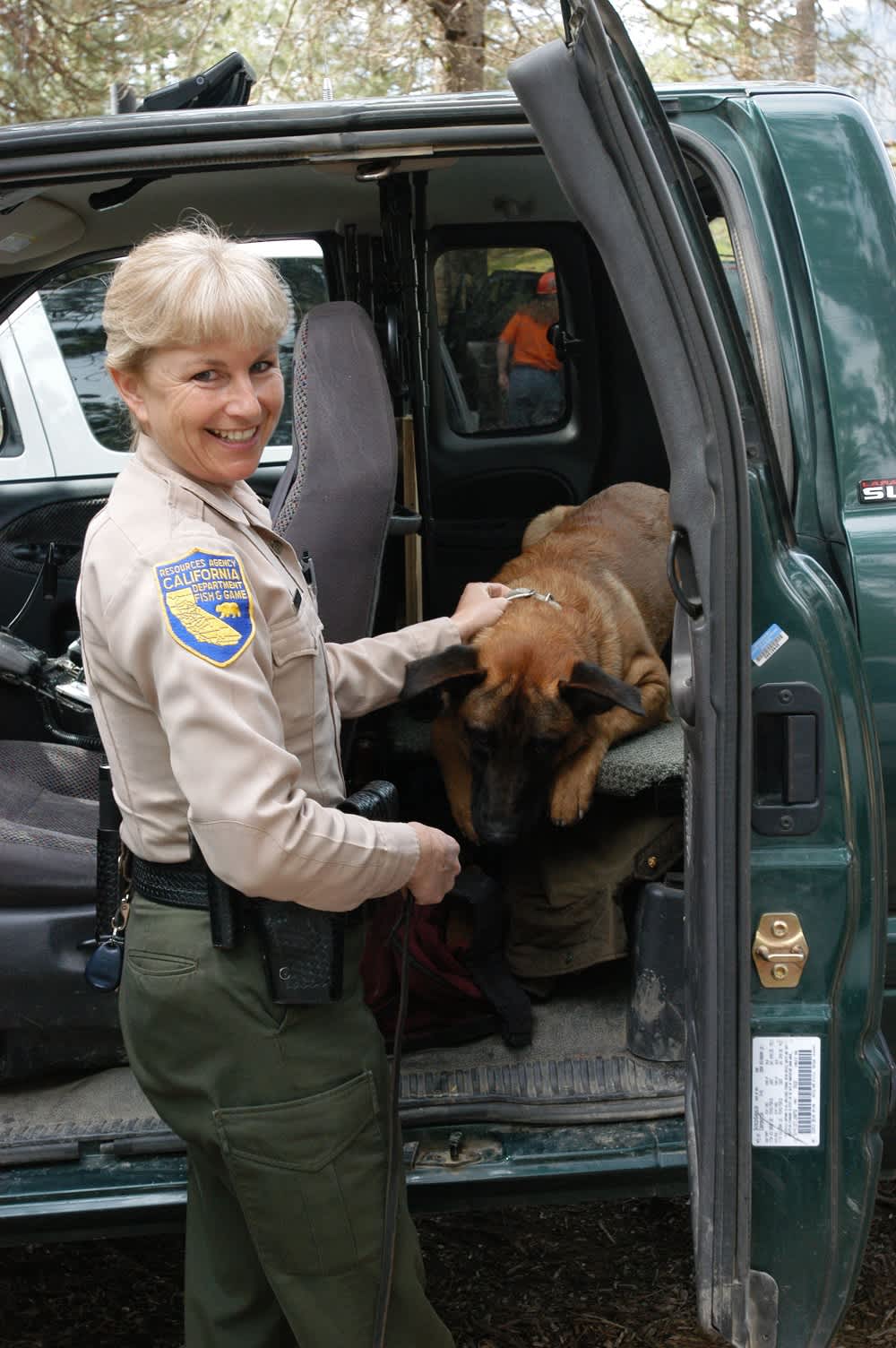Game Wardens’ Best Friends Have Four Feet
James Swan 04.17.14

Game wardens in general are a mystery to most folks, or at least they were until recently. Underfunded and unrecognized, little was known about just who game wardens actually were and what they do—until the recent flock of reality TV shows about them.
Suddenly the men and women of the “Thin Green Line” have become celebrities. California game wardens tell me that since the Wild Justice series has been on the air on the National Geographic Channel, people stop warden trucks for autographs, requests for personal appearances have dramatically increased, applications to become a game warden have skyrocketed, and some people in the field have confessed to crimes when they saw that the person who was questioning them was one of the featured wardens on the show.
One of the biggest stars of the show can’t sign any autographs, but she definitely can put down paw prints—Phoebe, warden Brian Boyd’s K-9 companion.
Normally, game wardens patrol in remote areas working solo without any back-up; making patrols, stops and arrests that many other law enforcement officers would not consider doing without considerable back-up support. Becoming that supportive member of the team is one place where a warden’s K-9 is worth its weight in gold.
According to Lieutenant Lynette Shimek, coordinator of the California game wardens K-9 unit, Phoebe has been responsible for locating at least 40 marijuana growers, which is some of the most dangerous work that wardens do. Shimek says, “Marijuana cultivation suspects are actively engaged in the commission of a felony, usually armed, extremely physically fit, and know the area better than their pursuers. Although most initial contacts with suspects result in foot pursuits, they can’t outrun Phoebe.”
Game warden K-9 companions begin their training by learning to protect the warden they are with. First and foremost, the dogs provide backup—and the dogs are fearless. They will take on anyone, armed or not, but they are very selective, and respond to commands of the warden. In one demonstration of this that we filmed for the Endangered Species: California Fish and Game Wardens documentary, Shimek told her patrol dog to sit. She then walked past a young boy and another 15 yards to an “attacker,” who was actually a dog trainer. On cue, the “attacker” began to wrestle with Shimek. The dog came racing past the young boy to go right after the attacker in a matter of seconds.
Recognizing the potential danger of their work, K-9 units are frequently outfitted with bulletproof vests, and they even get their own badges.
K-9 unit dogs also are trained to track odors and locate evidence using a sense of smell that’s significantly stronger than that of a human. You give a K-9 dog a whiff of something, and they’ll use their trained nose to locate it, whether it’s a shell casing in a field, a person hiding in the brush, an extra abalone hidden under a car seat, stashed guns, or a marijuana grow in the understory of a thicket. They also can sniff out invasive species like quagga mussels, which may be located on a boat trailer. In search and rescue missions they can save time and lives by finding people who are lost in the brush.
Studies show that one well-trained dog can save approximately 800 personnel hours per year.
Phoebe and Brian Boyd may be the best-known CA game warden K-9 patrol team, but they’re not the only one.
German shepherds, Belgian malinois, and Labrador retrievers are the most common K-9 companion breeds. Acquiring, training, and caring for K-9 companion unit is extensive and expensive. Maine K-9s and handlers train a minimum of 320 hours under the direct supervision of the Maine Criminal Justice Academy. The man-dog units must continue to train under the direction of a trainer for a minimum of 16 hours per month and complete a field test annually to maintain certification.
Funding for the California wardens’ K-9 unit is largely sourced from donations. For more information on how to support the California K-9 program, please contact Warden Lynette Shimek, K-9 Unit Coordinator, at (707) 275-8862.

